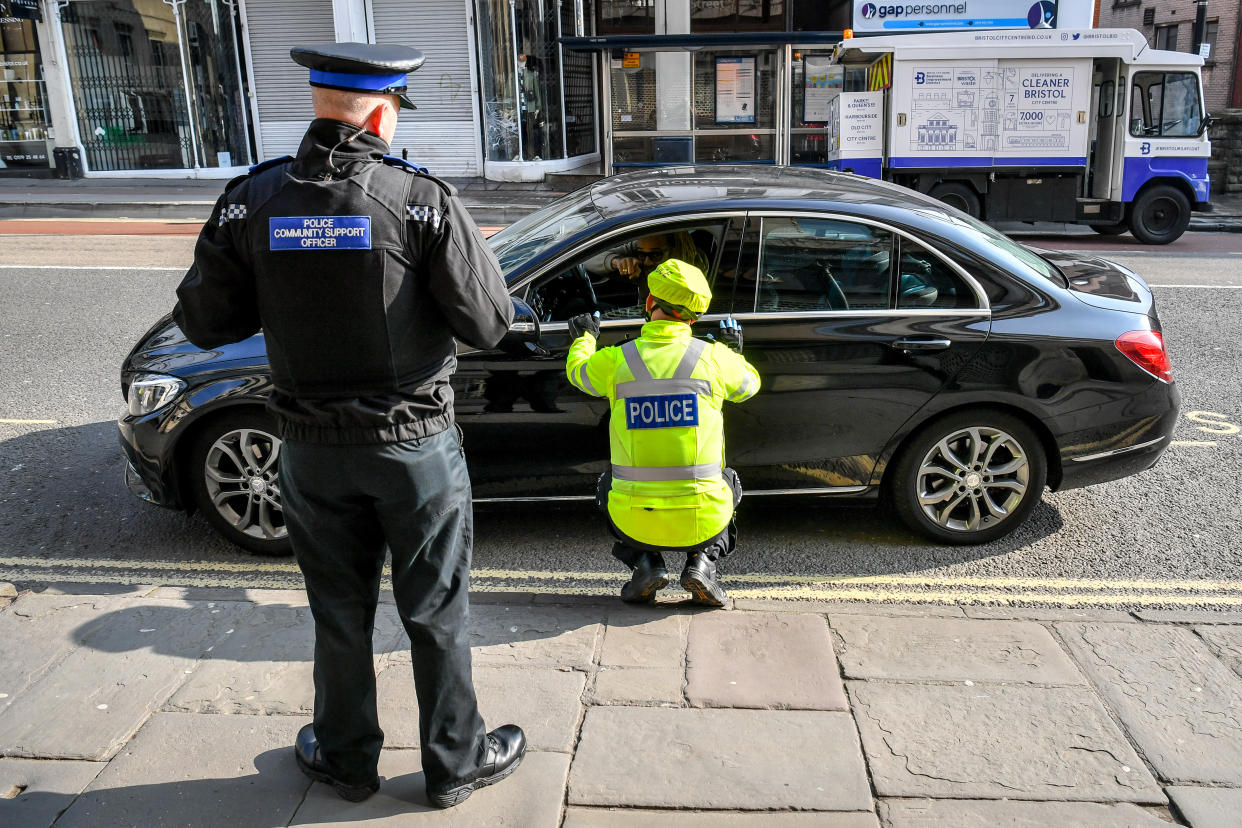'Why are you here?' Police leave notes on cars reminding motorists of coronavirus lockdown rules

Police in Derbyshire have started leaving notes on cars to remind drivers that they should avoid unnecessary travel during the coronavirus crisis.
A post on the Glossop Police Facebook page showed the posters, which outline what is permitted during the nationwide lockdown.
The force said: “The government restrictions currently in place due to coronavirus (COVID-19) do not permit you to use your vehicle to travel to this location to exercise.
“We have all been instructed to avoid all unnecessary travel. You should not be driving to a location away from home to undertake your daily exercise.”
Some of those responding to the post questioned whether the police were correct in their interpretation of the law.
David Quinn responded: “That's not what the law says at all. I don't like it when policemen lie.”
Latest coronavirus news, updates and advice
Live: Follow all the latest updates from the UK and around the world
Fact-checker: The number of COVID-19 cases in your local area
6 charts and maps that explain how COVID-19 is spreading
Richard Waugh added: “The legislation dies not say you cannot use your vehicles to travel to get exercise.
“Lying to the public undermines efforts to control this virus.”
Others were more supportive of the police measures, with one person responding: “We have been told not to travel unless it’s necessary.
“What level of stupidity to do you have to be at not to understand that.”
The Facebook post comes as police forces across Britain have been told people should not be punished for travelling a "reasonable distance" to exercise, following criticism of heavy-handed tactics used to enforce the lockdown.
The new guidance, issued by the National Police Chiefs' Council and the College of Policing on Tuesday night, also states road checks on every vehicle are “disproportionate".
It comes after Derbyshire Police faced a backlash for filming walkers with drones to deter visitors to the Peak District, while North Yorkshire Police stopped motorists at "checkpoints" last week.
The new guidance states: "Use your judgement and common sense; for example, people will want to exercise locally and may need to travel to do so, we don't want the public sanctioned for travelling a reasonable distance to exercise.
"Road checks on every vehicle is equally disproportionate. We should reserve enforcement only for individuals who have not responded to engage, explain, and encourage, where public health is at risk.”
Police have been told to be "consistent" when using new powers brought in after the government introduced social distancing measures last week.

People can only leave their homes to go shopping for basic necessities and medicines, to exercise, or to go to work if their job cannot be done from home.
Officers can fine or even arrest those flouting the rules under legislation enacted last Thursday.
Read more: Senior officers deny UK is now a 'police state' amid claims forces 'went too far'
But comments from government ministers have sometimes gone beyond the scope of the law, leading to potential confusion.
Some forces, including Derbyshire, said on Tuesday they had not used the new powers once, while Lancashire Police issued 123 fines for breaches of the rules over the weekend.
The guidance, which has been updated since it was originally sent to forces last week, said policing should be "by consent" with the initial response to "encourage voluntary compliance”.
It says: "There is no power to 'stop and account'. The police will apply the law in a system that is flexible, discretionary and pragmatic.
"This will enable officers to make sensible decisions and employ their judgement. Enforcement should be a last resort.”
West Midlands Police Chief Constable Dave Thompson said in a series of tweets on Tuesday that claims that Britain is becoming a "police state" are "widely off the mark”.
"I think the public are trying to stick to this, which they are, and I think the general comments that have been made by experts and people, they just need to cut us a little bit of slack at the moment, it's pretty tough," he said.
Coronavirus: what happened today
Click here to sign up to the latest news, advice and information with our daily Catch-up newsletter




